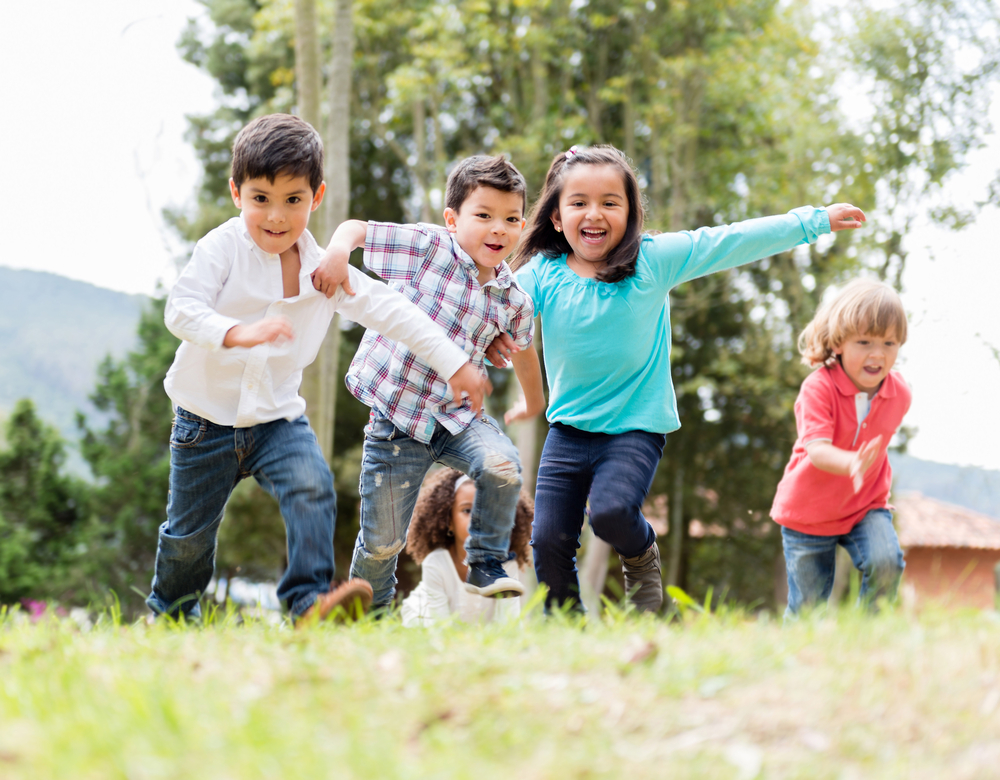Why Your School Should Have a Playground
Posted by May Recreation Content Team on

Kids spend most of their time during the school year inside of a classroom, doing school work. Most schools allow at least thirty minutes of free time outside to play with their classmates. To improve their playtime, schools should implement playgrounds because they are great tools in the development of kids' social and mental skills.
Playgrounds are important to have in schools. Allowing children to play on a playground during the school day gives them a break from schoolwork and lets them have fun and be kids. Playtime is important for the development of children, and it lets them relax and uncoil any of that restlessness that can build up from being in a classroom all day.
Here are some reasons it's important for schools to have playgrounds:
Playgrounds allow kids the freedom to be kids. Children should be allowed the freedom to run around and play. They are kids, they shouldn’t be expected to sit around all day. Having a playground is the perfect way to let kids truly be themselves. It lets them focus on something other than challenging tasks like schoolwork, and allows them to take a break and loosen up.
Kids learn social skills on the playground. Another reason schools should have playgrounds is that it helps teach kids social skills. Schools shouldn’t just focus on academic learning, but also social learning as well. This means allowing children to learn how to make friends with other kids in a non-academic setting. Letting kids interact with each other outside of the classroom helps build their social skills and ability to work and play with others. Playgrounds are a perfect outlet for children to socialize and make friends.
Playgrounds allow kids to get exercise. Not only are school playgrounds good for socialization, they are also good for the physical health of children. Exercise is important for kids of all ages, though most kids aren’t going to want to workout in ways that aren’t athletic activities. Playgrounds are a great way to keep kids active without the labor-intensive aspects of working out.
Playgrounds can help improve mental health in kids. Physical activity is not only good for kids' physical health, but their mental health as well. Letting kids outside to play on a playground can improve their mental health and keeps them healthy and in shape. Exercise gets your blood pumping and your endorphins flowing. Playing on a playground during school helps improve kids mental and physical health by getting them moving, and it allows them to get some exercise in a fun way.
Playgrounds encourage imaginative play. These playgrounds are also great ways to let kids' imaginations run wild. Imagination and playing pretend is important, because it aids in the development of social, emotional, creative, physical, lingual, and problem-solving skills in children. Schoolwork can sometimes feel as if imagination is being restricted, so playing with other kids on a playground lets children make up games and other creative activities.
More playground time equals less screen time. Playgrounds also teach kids how to play without electronics. Some kids may not get the chance to play on a playground outside of school, so having these structures at school allows them to have the opportunity to climb and play, instead of sitting inside with electronic devices or video games. Kids also use computers and/or tablets during class, so having some free time to play on a playground keeps the kids entertained in an electronic-free way.
Playgrounds allow for many different types of play. Playgrounds also offer a multitude of ways to keep children entertained as they play outside, so having one at your school is an excellent way to introduce kids to different ways to play. They have slides, swings, climbing walls, and many other things that teach kids new ways to have fun. These play structures also help kids improve their fine motor skills, which are important in human development. On top of the different kinds of play structures, playgrounds also allow kids to partake in solitary play, parallel play, onlooker play, associative play, or imaginative play - all of which are important for a child's development.
Children spend so much time at school, working on reading and writing, math and science and history. It’s not uncommon for kids to feel burnt out at the end of the school day. Schools having time set aside for playing, especially on a playground, is a fantastic way to make sure kids are happy and healthy throughout the school day.
If you're interested in building a playground, or updating your current one, contact May Recreation today and we'll help you plan!
